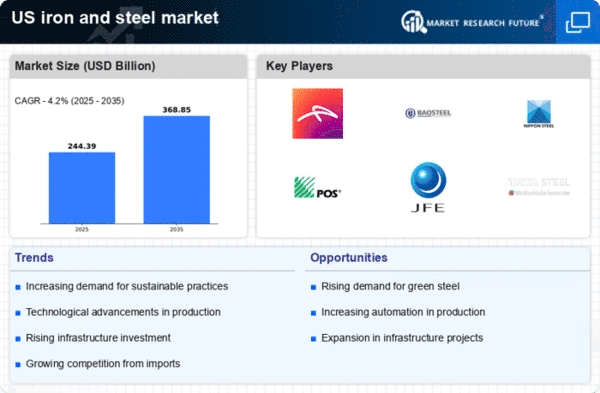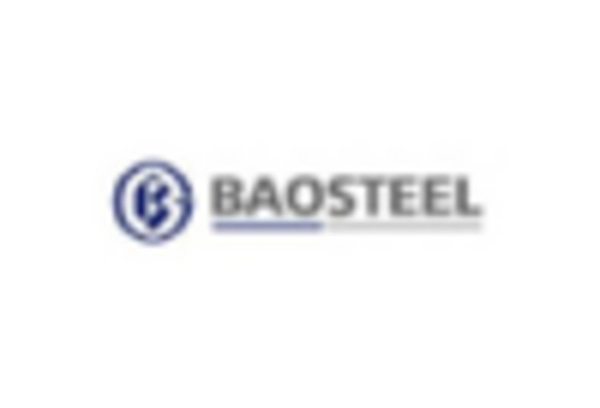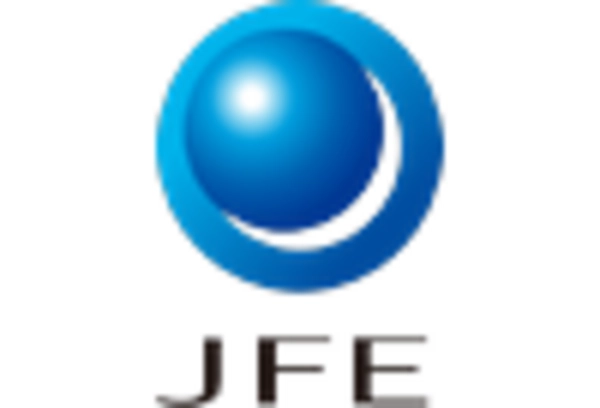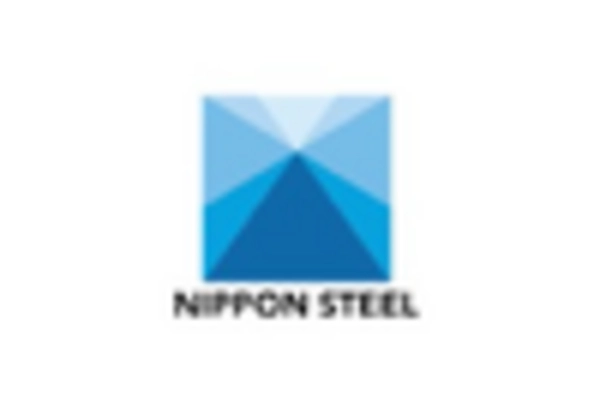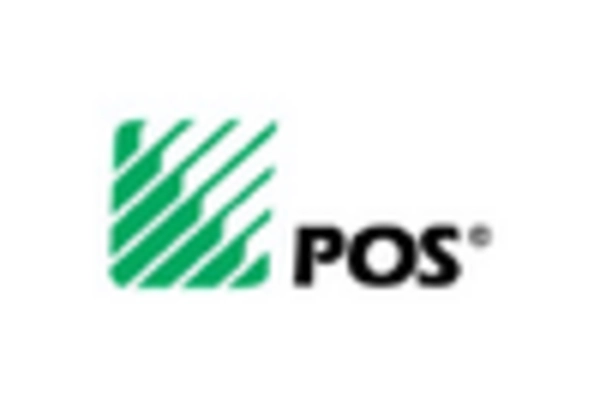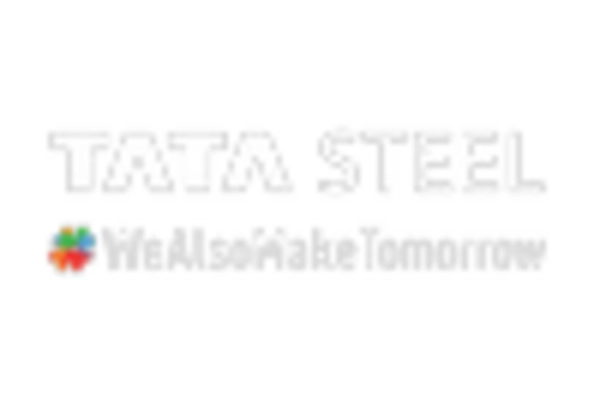The iron steel market is currently characterized by a competitive landscape that is both dynamic and multifaceted. Key growth drivers include increasing demand for infrastructure development, automotive production, and renewable energy projects. Major players such as ArcelorMittal (LU), United States Steel Corporation (US), and Tata Steel (IN) are strategically positioning themselves through innovation and regional expansion. ArcelorMittal (LU) focuses on sustainability initiatives, aiming to reduce carbon emissions, while United States Steel Corporation (US) emphasizes digital transformation to enhance operational efficiency. Tata Steel (IN) is actively pursuing partnerships to bolster its market presence, collectively shaping a competitive environment that prioritizes sustainability and technological advancement.In terms of business tactics, companies are increasingly localizing manufacturing to mitigate supply chain disruptions and optimize logistics. The market structure appears moderately fragmented, with a mix of large multinational corporations and smaller regional players. The collective influence of these key players is significant, as they drive trends in sustainability and technological integration, which are becoming essential for maintaining competitive advantage.
In October United States Steel Corporation (US) announced a strategic partnership with a leading technology firm to implement AI-driven solutions in its production processes. This move is likely to enhance operational efficiency and reduce costs, positioning the company favorably in a competitive market that increasingly values technological innovation. The integration of AI could streamline operations and improve product quality, thereby reinforcing United States Steel's market position.
In September ArcelorMittal (LU) unveiled its ambitious plan to invest €1 billion in green steel technology over the next five years. This investment is indicative of the company's commitment to sustainability and aligns with global trends towards reducing carbon footprints in steel production. By prioritizing green technologies, ArcelorMittal (LU) not only addresses regulatory pressures but also appeals to environmentally conscious consumers, potentially enhancing its market share.
In August Tata Steel (IN) expanded its operations in North America by acquiring a local steel manufacturer. This acquisition is expected to enhance Tata Steel's production capacity and market reach, allowing it to better serve the growing demand in the region. The strategic move reflects Tata Steel's focus on regional expansion and its intent to capitalize on the robust infrastructure development in North America.
As of November current competitive trends in the iron steel market are heavily influenced by digitalization, sustainability, and the integration of advanced technologies such as AI. Strategic alliances are increasingly shaping the landscape, enabling companies to leverage shared resources and expertise. Looking ahead, competitive differentiation is likely to evolve from traditional price-based competition to a focus on innovation, technology adoption, and supply chain reliability. This shift underscores the importance of adaptability and forward-thinking strategies in navigating the complexities of the iron steel market.


